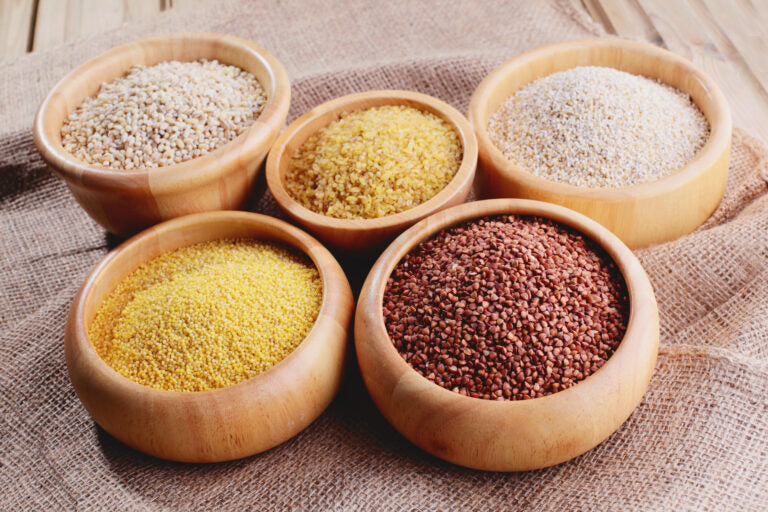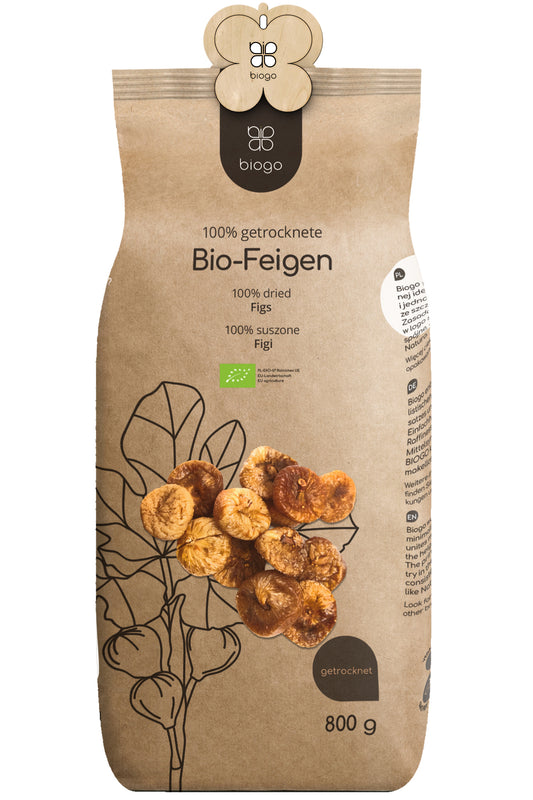- Why is groats so valuable?
- Groats in bags? Convenient, but not necessarily healthy
- How do you prepare groats so that they retain most of their valuable properties?
As a whole-grain product, groats are an excellent source of nutrients. They contain fiber, protein, B vitamins, and are also rich in minerals such as magnesium, iron, phosphorus, zinc, copper, and manganese. However, under certain conditions, groats can lose these valuable properties.
It should be noted that cooking groats in foil bags leads to the loss of important minerals. In addition, there is a risk of ingesting the harmful bisphenol A (BPA), a toxic substance that can negatively affect the nervous system, damage the liver, and disrupt hormonal balance. Therefore, it's worth considering a natural method of preparing groats.
How do you cook grits so they retain their nutritional value and original flavor? Let's look at practical tips that will help us enjoy a healthy and delicious meal.
Why is groats so valuable?
Groats are a unique food product made from whole grains that retain their most valuable components—the germ and husk. This makes them a rich source of fiber, including the soluble fraction, which promotes satiety and can support weight control. By incorporating groats such as barley, buckwheat, millet, corn, or couscous into our daily diet, we provide the body with complex carbohydrates, high-quality protein, and B vitamins, including folic acid.
We also shouldn't forget the minerals contained in groats— magnesium , iron, phosphorus, zinc, copper, and manganese are just a few. Their presence makes groats an integral part of a balanced diet, which finds its place in the food pyramids recommended by the National Center for Nutrition Education.
As we already know, the way groats are prepared has a significant impact on preserving their valuable nutrients. Incorrect preparation, for example, using too much water, can lead to nutrient loss. To avoid this, it's best to cook the groats loosely, with a little water, and over low heat. Prepared this way, they are a valuable and healthy part of your diet. What other secrets lie in the proper cooking of groats? The answer could change your approach to healthy eating.
Groats in bags? Convenient, but not necessarily healthy
Bisphenol A (BPA) is an organic chemical compound commonly used in the manufacture of plastics, including food wrap used in bags for cooking cereal and rice. When cooked in such bags, BPA can leach into the food and then enter the eater's body. This compound is extremely widespread—studies show it is present in 95% of urine samples, as well as in tissues, blood, breast milk, and placenta.
BPA has harmful effects on many levels. It causes liver damage, increases free radical production, and disrupts hormone balance, leading to excessive estrogen levels. In men, this leads to a decrease in testosterone levels, which can negatively impact sexual performance. BPA poses a particular threat to children, whose bodies have limited detoxification abilities. This substance easily crosses the placental and blood-brain barriers, disrupting nervous system development and increasing the risk of neurodegenerative diseases. Consumption of BPA-containing products by pregnant women, feeding infant formula from bottles containing this compound, or children's contact with toys containing BPA can all negatively impact brain development.
Due to confirmed risks, regulations in the European Union and the United States prohibit the use of BPA in products intended for children, such as bottles and toys. The "BPA-free" label guarantees safety in these cases. Unfortunately, adult consumers often remain uninformed and exposed to BPA. To reduce the risk, it's worth avoiding products packaged in plastic bags and instead opting for cereals or rice, which are sold in bulk. This choice not only allows you to avoid a harmful relationship but also supports a healthy lifestyle.
Many people still believe that cooking groats in foil bags is more time-saving and convenient than preparing them in bulk. However, this is a misconception. Groats cooked without bags require less water and therefore consume less energy. Furthermore, the time required to cook groats in bulk can be just as short or even shorter than cooking them in bags. Therefore, if both methods require a similar amount of time, it's worth choosing the one that's more health- and environmentally friendly.
Cooking grits directly in a pot also gives you more flexibility. Using simple tools like a glass or mug, you can adjust the amount to your exact needs. This avoids overcooking and reduces the risk of food waste. For bagged grits, you have to cook the entire contents, which is usually 100 grams. For some people, this can mean consuming too many calories they didn't intend to consume, or facing the dilemma of eating more than necessary or throwing away excess food.
How do you prepare groats so that they retain most of their valuable properties?
To maximize the nutritional value of the groats , it's best to cook them directly in the pot, using as little water as possible and maintaining a low temperature. This preparation preserves the minerals and vitamins that contribute to the high quality of the meal. Covering the cooking also helps preserve the nutrients in the dish.
With bagged groats, the process is completely different. More water enters the pot and is thrown away after cooking, along with valuable nutrients. This method results in the loss of ingredients that could enrich our meal.
Cooking groats in bulk is an easy way to enjoy a healthy and nutritious meal. This practice is better for both taste and the content of essential minerals, so it's worth practicing daily.
THE PUBLISHER'S CHOICE
Dried dates 1 kg BIOGO
- €4,21
€4,95- €4,21
- Unit price
- / per
Almonds 1 kg BIOGO
- €11,69
€13,75- €11,69
- Unit price
- / per
Peeled sunflower seeds 1 kg BIOGO
- €3,04
€3,57- €3,04
- Unit price
- / per
Dried organic mango 400 g BIOGO
- €10,99
- €10,99
- Unit price
- / per
Dried White Mulberries 500 g ORGANIC
- €5,84
€6,87- €5,84
- Unit price
- / per
Popcorn (corn kernels) organic 1 kg BIOGO
- €5,84
- €5,84
- Unit price
- / per
Organic Ground Turmeric 500 g BIOGO
- €5,92
- €5,92
- Unit price
- / per
Milk thistle seeds 1 kg BIOGO
- €3,99
- €3,99
- Unit price
- / per
Dried organic figs 800 g BIOGO
- €30,12
- €30,12
- Unit price
- / per
Bag #changezbiogo Cotton v.2
- €3,27
- €3,27
- Unit price
- / per






































































































































